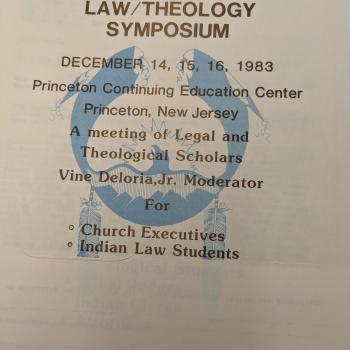Many people are not aware of the vital friendship between Benjamin Franklin and George Whitefield. Franklin became Whitefield’s key publicist and printer in the colonies in the early 1740s, and their relationship lasted until Whitefield’s death in 1770. They also exchanged friendly letters on many topics.
One of the most fascinating exchanges between them came in 1750, when Whitefield replied to Franklin’s plans for the Philadelphia Academy, the forerunner to the University of Pennsylvania. Franklin and the academy trustees had recently acquired the “New Building,” a spacious venue which Whitefield’s supporters had originally erected for the itinerant’s preaching. Now Franklin sent Whitefield a copy of his Proposals Relating to the Education of Youth in Pennsylvania (1749), which made a powerful case for liberal arts education in a time when the colonies still only had four colleges (Harvard, Yale, the College of New Jersey, and William and Mary), and Philadelphia had none. Whitefield was delighted with the plan, and happy to have the New Building put to such a use (especially if it remained available for preaching).
The main problem Whitefield had with Franklin’s proposals – a problem that reflected the fundamental spiritual divide between the men – was that Christianity seemed to be an afterthought. Franklin did note that students would receive instruction in the value of public and private religion, “and the excellency of the CHRISTIAN RELIGION above all others.” But this brief reference came only on page 22 of a 32 page document, and to Whitefield, this was not enough. In the excerpts below from the itinerant’s lengthy letter to Franklin in February 1750, Whitefield cast his own vision for Christian liberal arts education. But Franklin was more concerned with nonsectarianism than evangelicalism, and his vision ultimately won out, making Penn America’s first university with no denominational commitment.
“My Dear Mr. Franklin … I am glad that the gentlemen of Philadelphia are exerting their efforts to erect an academy. I have often thought such an institution was exceedingly wanted ; and I am persuaded, if well conducted, it will be of public service. I have read your plan, and do not wonder at its meeting with general approbation. It is certainly well calculated to promote polite literature; but, I think, there wants aliquid Christi [something of Christ] in it, to make it as useful as I would desire it might be.
It is true you say, ‘The youth are to be taught some public religion, and the excellency of the Christian religion in particular;’ but methinks this is mentioned too late, and too soon passed over. As we are all creatures of a day, as our whole life is but one small point between two eternities, it is reasonable to suppose that the grand end of every Christian institution for forming tender minds should be to convince them of their natural depravity, of the means of recovering out of it, and of the necessity of preparing for the enjoyment of the Supreme Being in a future state. These are the grand points in which Christianity centers. Arts and sciences may be built on this, and serve to embellish the superstructure, but without this there cannot be any good foundation.
I should also like the youth to board in the academy, and, by that means, to be always under the master’s eye. If a fund could be raised, for the free education of those of the poorer sort who appear to have promising abilities, I think it would greatly answer the design proposed. It has often been found, that some of our brightest men, in Church and State, have arisen from an obscure condition.
I hope your agreement meets with the approbation of the inhabitants, and that it will be serviceable to the cause of vital piety and good education. If these ends are answered, a free school erected, the debts paid, and a place preserved for public preaching, I do not see what reason there is for any one to complain. But all this depends on the integrity, disinterestedness, and piety of the gentlemen concerned. An institution, founded on such a basis, God will bless and succeed; but, without these, the most promising schemes will prove abortive, and the most flourishing structures turn out Babels. I wish you and the gentlemen concerned much prosperity; and pray the Lord of all lords to direct you to the best means to promote the best end; I mean the glory of God and the welfare of your fellow-creatures. Be pleased to remember me to them and to all friends as they come in your way, and believe me, dear sir,
Yours, etc.,
George Whitefield.”












